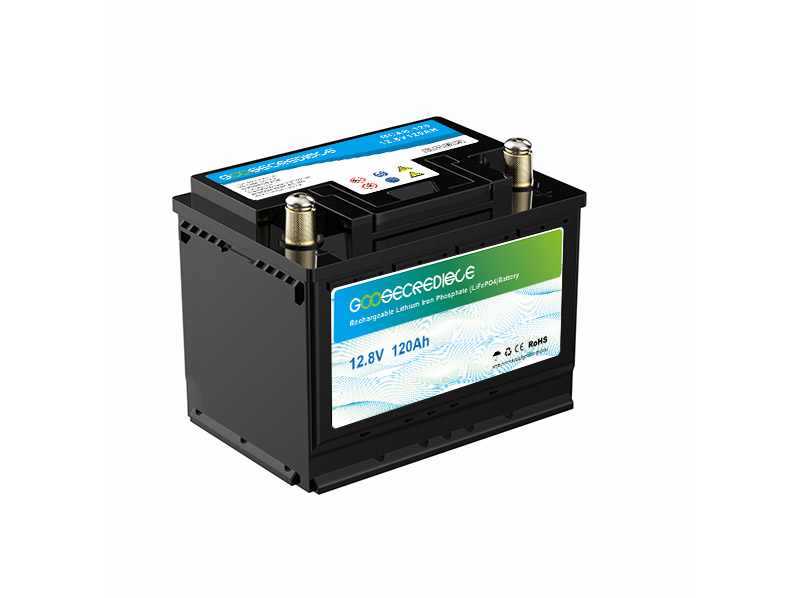Smart Grids Utilizing Lithium Batteries: Revolutionizing Energy Storage
Introduction:
The world’s increasing demand for electricity has led to the development of smart grids utilizing lithium batteries, which are revolutionizing energy storage. These smart grids are transforming traditional power networks into intelligent systems that can efficiently manage the generation, distribution, and consumption of electricity. This article explores the advantages, challenges, and future prospects of smart grids utilizing lithium batteries.
Advantages of Smart Grids:
1. Enhanced Energy Efficiency: Lithium batteries have a high energy density, allowing them to store large amounts of energy in a compact space. Smart grids utilizing lithium batteries can efficiently store excess energy during off-peak hours and supply it during peak demand, reducing wastage and improving energy efficiency.
2. Increased Renewable Integration: Smart grids can integrate renewable energy sources such as solar and wind power more effectively. Lithium batteries can store excess energy generated from these intermittent sources, allowing for a smoother integration into the grid and reducing reliance on fossil fuels.
3. Demand Response Management: Smart grids enable demand response management, where consumers can adjust their energy usage based on price signals or grid requirements. Lithium batteries play a crucial role in this process by storing excess energy during low-demand periods and supplying it during high-demand periods, ensuring a stable energy supply.
4. Grid Stability and Reliability: Lithium batteries provide fast response times and can quickly inject power into the grid during sudden fluctuations or outages. This enhances the stability and reliability of the electricity supply, reducing the risk of blackouts and grid failures.
Challenges of Smart Grids:
1. High Initial Costs: The installation and maintenance costs of smart grids utilizing lithium batteries can be high. However, as the technology advances and economies of scale are achieved, the costs are expected to decrease over time.
2. Limited Battery Lifespan: Lithium batteries have a limited lifespan and degrade over time, requiring replacement. However, with proper management and advancements in battery technology, the lifespan can be extended, reducing the overall costs and environmental impact.
3. Intermittency of Renewable Sources: The reliance on renewable energy sources such as solar and wind power introduces intermittency challenges in energy generation. Lithium batteries help mitigate this issue by storing excess energy during peak generation and supplying it during low generation periods, ensuring a stable energy supply.
Future Prospects:
1. Technological Advancements: Continuous research and development in lithium battery technology are expected to lead to improvements in energy density, lifespan, and overall performance. These advancements will further enhance the capabilities of smart grids, making them more efficient and reliable.

2. Grid Decentralization: Smart grids utilizing lithium batteries provide an opportunity for grid decentralization. Energy can be generated and stored locally, reducing transmission losses and increasing the resilience of the grid against natural disasters or cyberattacks.
3. Electric Vehicle Integration: With the increasing adoption of electric vehicles (EVs), smart grids can utilize the batteries of these vehicles for energy storage. This vehicle-to-grid integration can help manage peak demand and provide an additional source of energy during emergencies.
Conclusion:
Smart grids utilizing lithium batteries are revolutionizing energy storage and transforming traditional power systems into intelligent and efficient networks. The advantages of enhanced energy efficiency, increased renewable integration, demand response management, and improved grid stability outweigh the challenges of high initial costs, limited battery lifespan, and intermittency of renewable sources. With continuous technological advancements and the integration of electric vehicles, the future prospects for smart grids utilizing lithium batteries are promising. As the world continues to seek sustainable energy solutions, these smart grids will play a vital role in meeting the growing demand for electricity while minimizing the environmental impact.
-
 If you're a motorcycle enthusiast, you know that the right battery can make all the difference in your ride. A reliable, long-lasting battery is essential for powering your motorcycle's engine, lights, and other electronics. That's why many riders are turning to LiFePO4 batteries for their motorbikes. LiFePO4 batteries are a type of lithium-ion battery that offer many advantages over...Read more
If you're a motorcycle enthusiast, you know that the right battery can make all the difference in your ride. A reliable, long-lasting battery is essential for powering your motorcycle's engine, lights, and other electronics. That's why many riders are turning to LiFePO4 batteries for their motorbikes. LiFePO4 batteries are a type of lithium-ion battery that offer many advantages over...Read more -
 LiFePO4 batteries, also known as lithium iron phosphate batteries, have gained increasing popularity in recent years due to their numerous advantages over traditional lead-acid batteries. In this article, we will discuss the advantages of using a LiFePO4 battery. 1. Longer Lifespan The primary advantage of using a LiFePO4 battery is their long lifespan. Compared to traditional lead-acid batteries,...Read more
LiFePO4 batteries, also known as lithium iron phosphate batteries, have gained increasing popularity in recent years due to their numerous advantages over traditional lead-acid batteries. In this article, we will discuss the advantages of using a LiFePO4 battery. 1. Longer Lifespan The primary advantage of using a LiFePO4 battery is their long lifespan. Compared to traditional lead-acid batteries,...Read more -
 Golf is a sport loved by many for its strategic gameplay and serene atmosphere. Whether you are a professional golfer or a recreational player, having a reliable and efficient golf cart is essential to enhance your overall experience on the course. And at the heart of every golf cart lies its battery, which powers all its operations. In this article,...Read more
Golf is a sport loved by many for its strategic gameplay and serene atmosphere. Whether you are a professional golfer or a recreational player, having a reliable and efficient golf cart is essential to enhance your overall experience on the course. And at the heart of every golf cart lies its battery, which powers all its operations. In this article,...Read more -
 As a key component of electric vehicles, electric vehicle batteries have a significant impact on the performance, range and safety of electric vehicles. The following is a detailed introduction to some of the key technical points and performance characteristics of electric vehicle batteries: Battery Type Lithium-ion battery: The most common type of battery used in electric vehicles. Lithium-ion batteries have...Read more
As a key component of electric vehicles, electric vehicle batteries have a significant impact on the performance, range and safety of electric vehicles. The following is a detailed introduction to some of the key technical points and performance characteristics of electric vehicle batteries: Battery Type Lithium-ion battery: The most common type of battery used in electric vehicles. Lithium-ion batteries have...Read more -
 Introduction: In recent years, the demand for sustainable and eco-friendly power solutions has been on the rise. As a result, researchers and manufacturers have been developing energy storage systems that are not only efficient but also environmentally friendly. One such innovation is the high-capacity 12V 100Ah LiFePO4 (Lithium Iron Phosphate) battery. This article explores the features and benefits of this...Read more
Introduction: In recent years, the demand for sustainable and eco-friendly power solutions has been on the rise. As a result, researchers and manufacturers have been developing energy storage systems that are not only efficient but also environmentally friendly. One such innovation is the high-capacity 12V 100Ah LiFePO4 (Lithium Iron Phosphate) battery. This article explores the features and benefits of this...Read more -
 In today's world, we are heavily reliant on portable electronic devices such as smartphones, laptops, and tablets. With the increasing need for uninterrupted power supply, people are turning to advanced battery technologies like Lithium Iron Phosphate (LiFePO4) batteries. One such battery that has gained popularity is the 12V 200Ah LiFePO4 battery. In this article, we will explore why this battery...Read more
In today's world, we are heavily reliant on portable electronic devices such as smartphones, laptops, and tablets. With the increasing need for uninterrupted power supply, people are turning to advanced battery technologies like Lithium Iron Phosphate (LiFePO4) batteries. One such battery that has gained popularity is the 12V 200Ah LiFePO4 battery. In this article, we will explore why this battery...Read more -
 The rated capacity of a starter battery indicates the amount of electrical energy that the battery can deliver over a certain period of time. This is expressed in ampere-hours (Ah) and is a measure of the battery's ability to provide a sustained current flow. In practical terms, the rated capacity of a starter battery determines how long the battery...Read more
The rated capacity of a starter battery indicates the amount of electrical energy that the battery can deliver over a certain period of time. This is expressed in ampere-hours (Ah) and is a measure of the battery's ability to provide a sustained current flow. In practical terms, the rated capacity of a starter battery determines how long the battery...Read more

